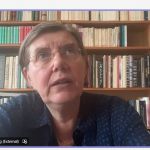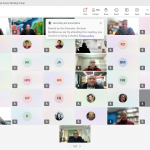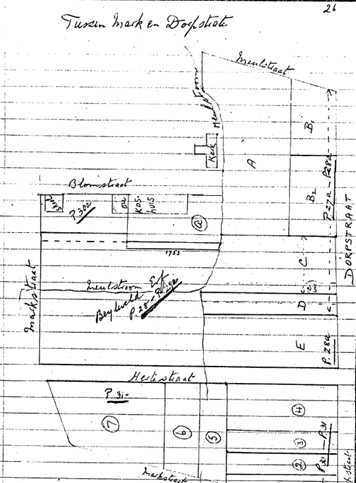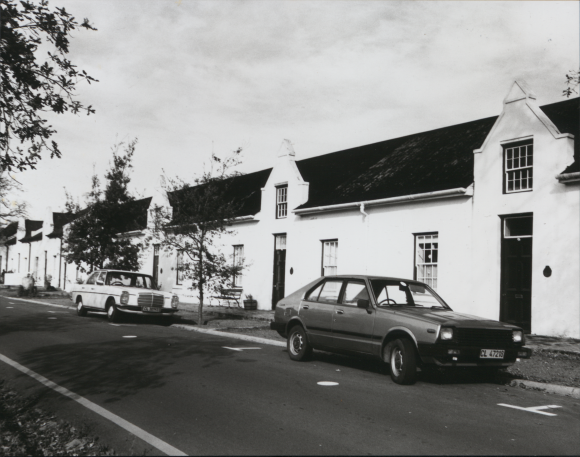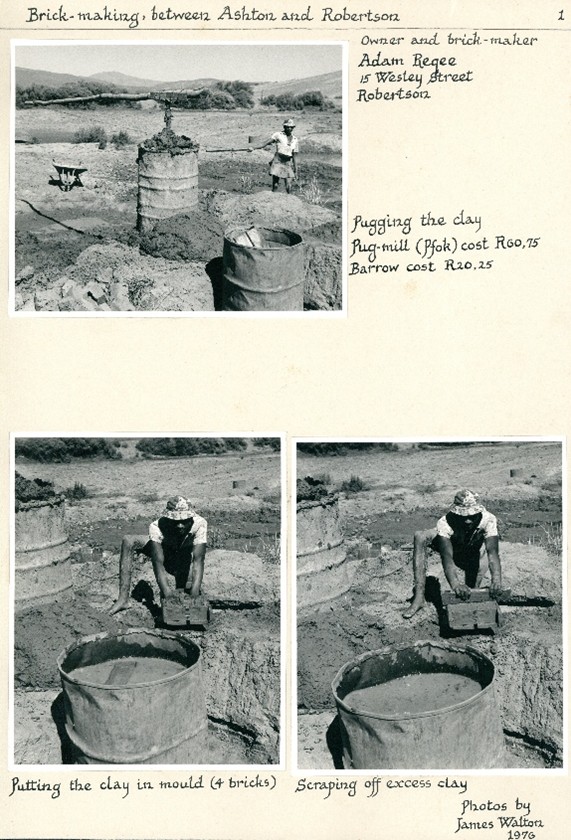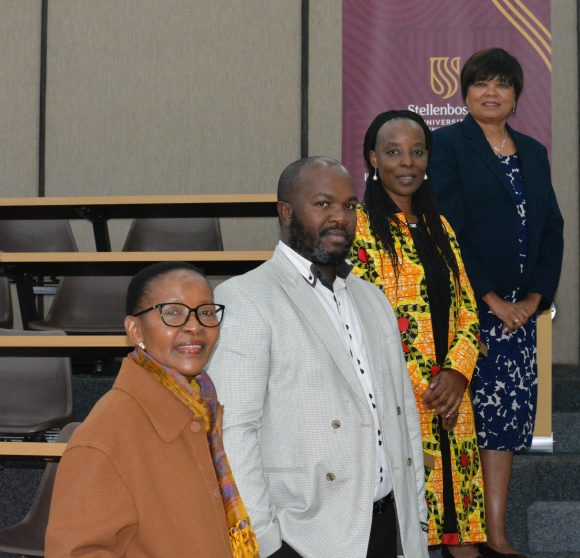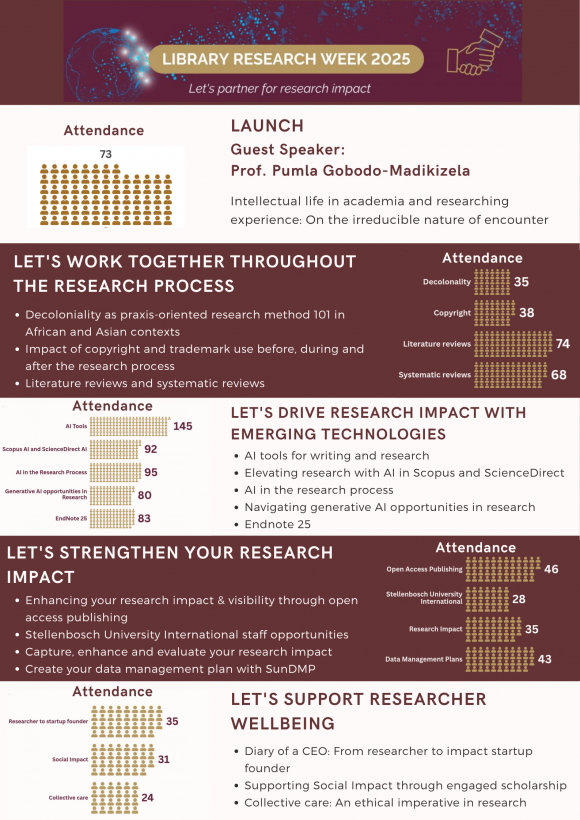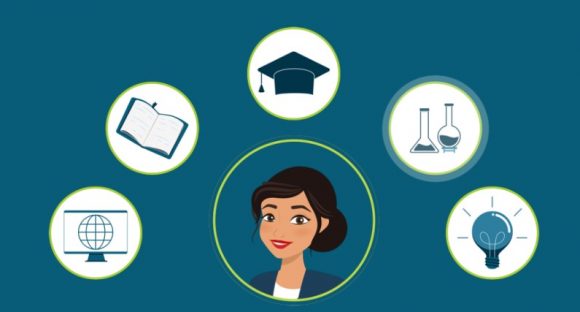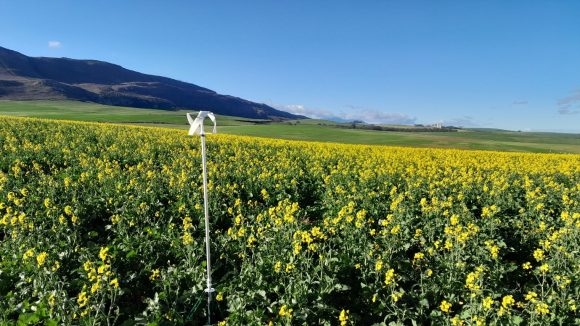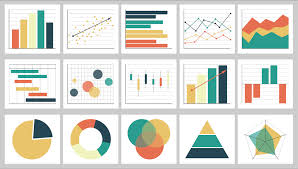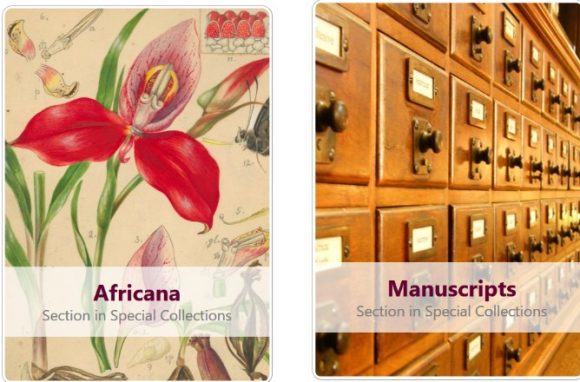Stellenbosch University Library and Information Service hosted its third #BeOpenAccessSmartWebinar on 19 June 2025, titled “Beyond Transformative Agreements – Reflections from an Open Access Working Group.” The session featured renowned guest speaker Professor Astrid Söderbergh Widding, former President of Stockholm University 2013-2025, Chair of the Board of the Nobel Foundation and Chair of the Beyond Transformative Agreements Working Group in Sweden.
Opening remarks were delivered by Ms Ellen Tise, who welcomed attendees from 23 countries. Prof. Sibusiso Moyo, Deputy Vice-Chancellor: Research, Innovation and Postgraduate Studies, highlighted the global growth of “Read and Publish” agreements but noted their financial strain on institutions in the Global South. She encouraged continued use of such agreements as interim solutions, while calling for alternative and equitable open access models.
Prof. Widding presented a comprehensive overview of Sweden’s approach to Open Science. She explained how the Bibsam Consortium, consisting of 95 Swedish institutions, manages over 30 transformative agreements. Sweden’s national goal is to transition to a full Open Science system by 2026, with guidelines developed by the National Library and the Swedish Association of Higher Education Institutions.
She described four potential routes for moving beyond transformative agreements: (1) cancelling existing agreements with commercial publishers, (2) exploring alternative publishing platforms, (3) implementing lump-sum funding in place of APCs, and (4) adopting rights retention strategies to keep copyright within the academic community. While rights retention has gained traction in the UK and Norway, Sweden is still exploring its feasibility.
A pivotal decision shared during the webinar was the Bibsam Consortium’s plan to cease negotiating agreements for hybrid journals from 2026. Instead, future negotiations will focus solely on fully open access journals. Prof. Widding emphasized the importance of developing robust infrastructure for Diamond Open Access as a sustainable publishing model—one that is free for both readers and authors.
She firmly stated that the academic community must reclaim ownership of the scholarly publishing system and reduce reliance on commercial publishers. Transparency in cost models and collective academic behaviour are crucial levers for change.
The session called on global institutions—especially in the Global South—to imagine a fairer future for knowledge sharing, where access is not dictated by commercial interests, but by academic collaboration.
The next webinar in the series is scheduled for 17 September 2025.
Authors: Sakhile Mngomezulu and Theresa Schoeman
Please contact Sakhile for any enquiries on Open Access publishing.
